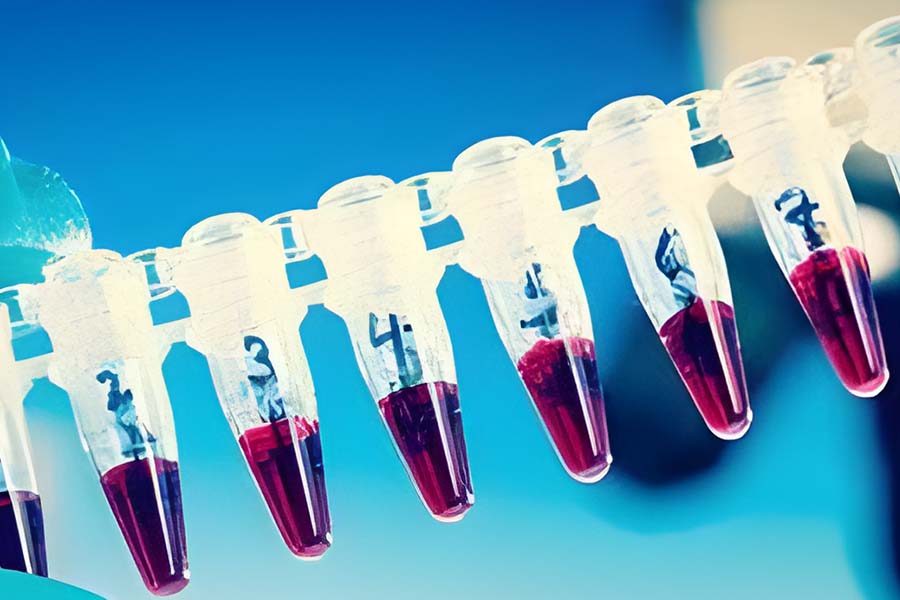
PCR: A Cornerstone Technique in Biotechnology
At Vetrona Biotechnology, we recognize the transformative impact of Polymerase Chain Reaction (PCR) on molecular biology and biotechnology. PCR is a powerful technique that allows scientists to amplify specific segments of DNA, making it an essential tool for a wide range of applications, from diagnosing diseases to advancing genetic research. In this post, we’ll explore what PCR is, how it works, its various types, and its critical role in modern science.
What is PCR?
Polymerase Chain Reaction, or PCR, is a laboratory method used to make multiple copies of a specific DNA segment. This process, often referred to as “molecular photocopying,” enables researchers to generate millions of copies from a tiny sample of DNA, making it easier to study and analyze. PCR has become a cornerstone technique in fields such as genetics, forensics, microbiology, and biotechnology due to its precision, speed, and versatility.
How Does PCR Work?
PCR involves a series of temperature-controlled cycles that replicate DNA. Each cycle consists of three main steps:
- Denaturation: The DNA sample is heated to around 95°C to separate the double-stranded DNA into two single strands.
- Annealing: The temperature is lowered to 50-65°C, allowing short DNA sequences called primers to bind to the target regions on the single-stranded DNA. Primers are designed to match the specific DNA segment you want to amplify.
- Extension: The temperature is raised to 72°C, and an enzyme called DNA polymerase adds nucleotides (the building blocks of DNA) to the primers, synthesizing new DNA strands.
These steps are repeated 20-40 times, with each cycle doubling the amount of DNA, leading to exponential amplification of the target sequence.
Types of PCR and Their Applications
There are several variations of PCR, each designed for specific purposes:
- Standard PCR: Used for amplifying DNA segments for cloning, sequencing, or genetic analysis.
- Reverse Transcription PCR (RT-PCR): Converts RNA into complementary DNA (cDNA) and amplifies it, making it ideal for studying gene expression or detecting RNA viruses.
- Quantitative PCR (qPCR): Also known as real-time PCR, this method quantifies the amount of DNA or RNA in a sample, which is crucial for applications like measuring viral loads or assessing gene expression levels.
- Multiplex PCR: Allows the simultaneous amplification of multiple DNA targets in a single reaction, saving time and resources.
These variations make PCR a versatile tool that can be tailored to meet the specific needs of your research or diagnostic applications.
Applications of PCR in Biotechnology
PCR has a broad range of applications that have revolutionized science and medicine:
- Disease Diagnosis: PCR is used to detect pathogens, such as bacteria and viruses, by amplifying their genetic material from patient samples.
- Genetic Testing: It helps identify genetic mutations associated with inherited diseases or cancer.
- Forensic Science: PCR amplifies DNA from crime scene samples, enabling DNA profiling and identification.
- Research: Scientists use PCR to study gene function, evolution, and biodiversity, among other areas.
The ability to amplify tiny amounts of DNA has opened up new possibilities in personalized medicine, environmental monitoring, and beyond.
Advances in PCR Technology
Recent innovations have made PCR even more powerful and accessible:
- Digital PCR: Provides absolute quantification of DNA or RNA without the need for standard curves, offering higher precision for low-abundance targets.
- Portable PCR Devices: Compact, field-deployable PCR machines allow for on-site testing, which is especially valuable in remote or resource-limited settings.
- Automated Systems: High-throughput PCR platforms enable large-scale screening and analysis, accelerating research and diagnostics.
At Vetrona Biotechnology, we stay at the forefront of these advancements, offering state-of-the-art PCR solutions to meet the evolving demands of biotech innovation.
Tips for Successful PCR
To achieve reliable and accurate results, consider these best practices:
- Optimize Primer Design: Well-designed primers are crucial for specific and efficient amplification.
- Use High-Quality Reagents: Ensure your DNA polymerase, nucleotides, and buffers are of the highest quality to avoid contamination or degradation.
- Control for Contamination: Use proper lab techniques and controls to prevent false positives or negatives.
- Fine-Tune Cycling Conditions: Adjust temperatures and cycle numbers based on your specific target and sample type.
Our team at Vetrona Biotechnology is always available to provide guidance and support to help you optimize your PCR experiments.
PCR in the Biotech Workflow
PCR is often a critical step in larger experimental workflows, such as:
- Preparing DNA for sequencing or cloning.
- Detecting gene expression through RT-PCR.
- Quantifying gene copy numbers with qPCR.
Its versatility and reliability make PCR an indispensable part of the biotech toolkit.
At Vetrona Biotechnology, we are committed to supporting your PCR needs with our comprehensive range of products and services. From high-quality PCR kits and reagents to advanced qPCR instruments and expert technical support, we provide the tools you need to achieve precise and reproducible results. Visit our website to explore our PCR solutions or contact our team for personalized assistance.